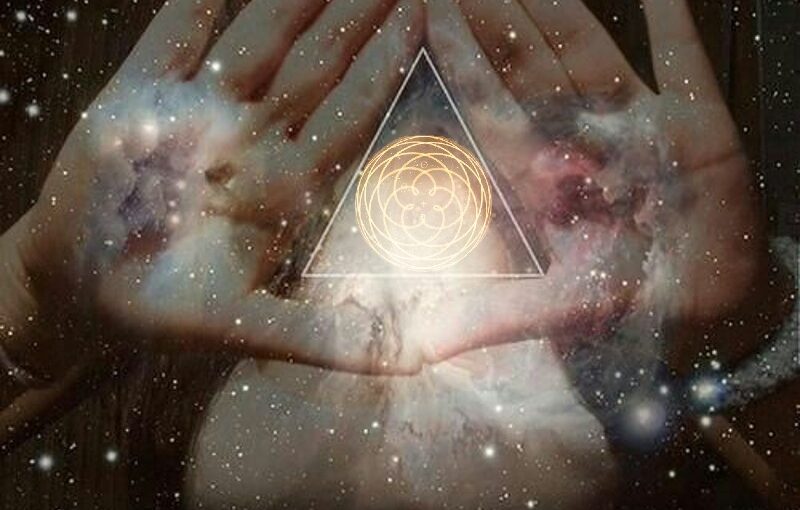Understanding objective morality requires a participatory effort. If we already had it figured out, we’d have a consensus on the most important factors involved in humans agreeing on the most fundamental things.
The broad definition of objective morality can be summed up with the idea that despite our unique subjective experiences creating the different axioms that define our personal morality we all share a common underlying understanding of what is inherently right and wrong.
That common underlying understanding first born from the constraints nature imposes upon us. The observable realms of cause and effect are restricted by how far down the timeline we can see, limiting our capacity to consider what is objectively right and wrong.
The general idea is that if we work against our very own nature we will eventually become sick. This applies to both the individual and the collective body. Knowing ourselves is the first precursor to using this model, especially if you’re observing things from a shorter timeline (which most of us are). If you don’t know what will kill you, you certainly don’t know how to avoid it.
More commonly though, from that first tier understanding, nature most often does not respond instantaneously with negative consequences to our harmful actions. 99.99999% of the time nature will not immediately strike you down with lightening if you harm another human being or yourself.
Our ability to understand the depth of things and how they are interconnected is what determines our general ability to act as objective moral agents in the world.
From a second tier understanding, the negative consequences of immoral actions will be mirrored back to us from our subconscious minds. That is, if a morally objective wrongdoing was done, our nature will begin to reflect back to us an innate sense of shame. Physical sensations bubbling up into thoughts and feelings which express themselves in the distorted cognitive re-framing of our experiences.
Self-awareness and self-knowledge birth the rational mind. We can not be rational about what we are feeling and sensing if we don’t understand why our thoughts are expressing themselves in a particular way to begin with.
Nature is both beast and divine. The beast will kill to protect and provide without seeking a way around having to harm others. The divine seeks to meet one’s needs in the world without having to destroy everything in it’s path. It’ll often choose simply to move around obstructions.
From the beginning of time the warring for territory and resources has led to the annihilation of many peoples and cultures. Nature may not have shown the instant consequences of such wrongdoings but the divine surely left it’s roar in the stories and archetypes drawn on the halls of time. Mythologies that demonstrate the cyclical and proliferical nature of those problems. One war leading to the next, one death of a culture to another, one life of harmful doings leading to the karmic impacts imposed within another.
There is no consensus on objective morality because we are unable to see far enough out into the field of interconnectivity. Beginning with the field of interconnectivity within the self. Our human minds aren’t designed to see so far. Even the best quantum computing computers in the world can’t predict every instance of cause and effect (thus why they are becoming increasingly more dangerous than humans).
What we do have to guide us is our desire to know the truth, to gain greater self-knowledge, to increase our intuition and to gain a better understanding of the natural laws. Within this context the law of correspondence plays a key role.
Knowing ourselves allows us to know where we are best suited to put our energy. What foods and physical exercise best suite our unique bodies. Who we are most suited to interact with, for how long and why. What activities spark our passions and longevity. What type of career would best match our strengths and abilities. The types of men or women we are best suited to pair with for family, work or pleasure.
Our best intuition comes from an accumulation of experience combined with a strong connection to soul. If we lack in either of these departments we are likely to act out of ignorance. For a strong connection to soul we need to nurture a strong connection to heart and put in the effort to understand our cosmic nature. Heart teaches us compassion while simultaneously teaching us the lessons of what not to let into our sacred circle and why.
While fear will have us acting from a place of emotional reactivity love will have us acting from a place of observation, self-reflection and care-full action.
The law of correspondence being the third tier (or third turning). Similar to Wu Wei, it allows us to act intuitively from our cosmic connection to the divine reflection within each moment. This type of sight provides us with a way to best fulfill the needs of what is beyond our capacity to comprehend with reason.
From this place of attunement it will not be possible to never harm others entirely, but if the other two tiers have been cultivated, harm will never be intentional and in the least will be well informed.
If attention and effort is placed long enough in gaining an understanding of our basic human biology and psychology, of our place within the universe and how we are innately wired to it. As well of our intimate moment to moment connection with it, we may begin to align with something more akin to objective morality together, on a global scale.
Part of the journey of our cosmic evolution in getting there is becoming accepting of our own personal limitations while maintaining an unyielding desire to keep learning. Hungering for truth and hungering for knowledge. It’s what I like to call an appetite for the divine!
